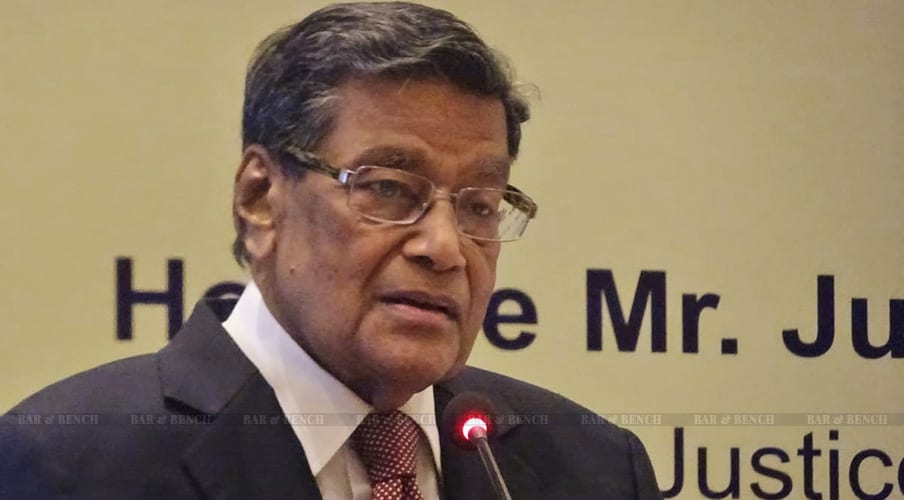Democracy comprises four pillars viz; the Parliament, the Judiciary, the Bureaucracy, and the Media. Of these, the Parliament, which has the mandate of the people, is supposed to be supreme. However, lately, this perception has taken a severe drubbing after a rise in judicial activism. In a common man’s opinion, the Judiciary, while presenting itself as ‘Supreme,’ does not seem to be the panacea to solve our country’s mounting problems. Instead, it has ended up creating several problems. The SC’s verdict on Sabarimala Temple is just one example of this. Its verdict on Sabarimala Temple case ensued with state-wide protests by the devotees of Bhagwan Ayyappa.
The Attorney General of India speaking on- ‘Is Constitutional Morality a further tool in the armory of the Supreme Court for expanding judicial review?’- at the Second J Dadachanji Memorial Debate in New Delhi, criticized the apex court for relying on Constitutional morality and the basic structure doctrines. The Indian Express quoted the Attorney General K K Venugopal saying, “Use of constitutional morality can be very very dangerous and we can’t be sure where it will lead us to. I hope constitutional morality dies soon. Otherwise, our first Prime Minister Pt. Nehru’s fear that the Supreme Court will become the third chamber (of Parliament) might come true.”
Use of Constitutional morality can be very very dangerous and we cant be sure where it will lead us.
I hope Constitutional morality dies soon, Attorney General KK Venugopal
— Bar and Bench (@barandbench) December 8, 2018
Referring to the Sabarimala judgement, Venugopal said, “What is this Constitutional morality? If a bench of the Supreme Court speaks in two different voices, one saying Constitutional morality will permit the entry of women and the other one which says no, it’s prohibited because of constitutional morality, that is a very dangerous weapon. You cannot use it. It can result in grave injury without anyone knowing where it’s going to end. Therefore I’m hoping Constitutional morality will die with its birth. If it still persists with it, I’m afraid that Pandit Nehru’s belief that it would result in the Supreme Court of India becoming the third chamber will come true.”
The apex court had, in a 4:1 judgement allowed the entry of women of all ages inside the Sabarimala temple in Kerala. Both the minority and majority judgments had relied on Constitutional morality to justify their decisions. Venugopal said that the Courts should be very careful while interfering in religious beliefs.
The AG also said that the Supreme Court had “Garnered to itself vast powers, which no one apex court in the world has ever exercised”, and criticized the manner in which apex court interpreted the Article 142 of the Constitution. Venugopal said, “Article 142 merely permitted the Court to pass such decree or make such order as to do complete justice in any cause or matter pending before the court. But the Article was treated as a Kamadhenu from which unlimited powers flowed to the apex court of the country.” According to an Indian Express report, he explained the reason for using the word “unlimited”. Venugopal said that he employed the word “unlimited” because of what Justice M N Venkatachaliah had said about it in the Union Carbide judgement in 1991. In that case, the apex court had said “The power under Article 142 is at an entirely different level and of a different quality. Prohibitions or limitations or provisions contained in ordinary laws cannot, ipso facto, act as prohibitions or limitations on the constitutional powers under Article 142. It will again be wholly incorrect to say that powers under Article 142 are subject to such express statutory prohibitions. That would convey the idea that statutory provisions override a constitutional provision”
Referring to this, Venugopal said, “First of all, Article 142 had nothing whatsoever to do with the powers of Parliament. It had nothing to do with the powers of the Supreme Court override the laws made by the Parliament. But, this is what was said by the very eminent judge Justice Venkatachaliah. In other words, they said that so far as the Supreme Court is concerned, we are above the laws”. He further added, “The result is that instead of the supremacy of the Constitution, the supremacy of the Supreme Court of India was established.” Venugopal also said that the “SC used Article 142 as a powerful weapon which surpassed all the powers conferred on the apex court by the Constitution”.
Referring to Preamble of the Constitution, Venugopal pointed out, “The Preamble of the Constitution says ‘We the people’. We gave to ourselves this Constitution. Are you going to treat the whole of the population as illiterate and not able to think for themselves? I say no. Maybe the illiteracy today is 26 percent, but even those (people living in the villages and rural areas), they have basic wisdom and they know what is good for them. And therefore, for the court to believe that unless we interfere, the country is doomed, I say no, it can’t.”
In Tribune, Satyaprakash writes, “Constitution has to be interpreted literally. No limitations can be placed on powers of Parliament through some vague concepts such as basic structure and constitutional morality which were capable of being interpreted by different judges differently.”
